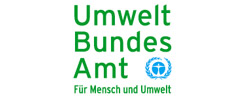Crowdfunding Project: Biogas Toilets for deprived families in Uganda
Via a crowdfunding campaign WECF collected more than 4.600 Euro to fight the sanitary grievances in rural Uganda. Thanks to over 50 donations WECF builds in cooperation with our local partner organization ARUWE 17 Biogas Toilets in Mulagi Sub-County.
01.07.2016
| Countries: | Uganda |
| Donors: | Private donors via crowdfunding campaign (https://www.chuffed.org/project/toilets4uganda) |
| Partners: | Action for Rural Womens' Empowerment (ARUWE) |
| Issues: | Water & Sanitation, Sustainable Energy, Health |
| Duration: | 07/2016 - 01/2017 |

Via a crowdfunding campaign on chuffed.org we collected within 30 days more than 4.600 Euro which enables us to finance 17 Biogas Toilets in Uganda. The beneficiaries are among the most vulnerable families in Mulagi Sub-County. The project targets on the one hand the inhumane sanitary situation which presents for Ugandan people a serious health risk. On the other hand the Biogas Toilets convert faeces into gas and provide thereby the households with a sustainable energy source for cooking. Moreover, the processed faeces can be used as a organic fertilizer in agriculture.
Background of the project:
It's 2016 and the world may have 7 billion mobile phone subscriptions - but only 4.5 billion people have access to proper toilets. Hygienic sanitation is still not available for everyone. About 1 billion people must practice open defecation.¹ No doubt, for many reasons this is unbearable.
- Health: Without hygienic sanitation bacteria can easily spread and cause diseases like Diarrhea that kills 530.000 children every year.²
- Contamination: Open defecation contaminates the groundwater. About 1.8 billion people globally use a source of drinking-water that is contaminated with faeces.³
- Dignity: Let's face it: sometimes we love to spend time on the restroom, for reading a book or just getting stuck on the smartphone. No one wishes someone else to be forced to defecate openly or in a dirty latrine.
However, this is the reality millions of people have to face everyday. Uganda is a sub-Saharan country in East Africa with about 35 million people. In 2015, 81% of the population did not have access to improved sanitation.⁴ Even more severe is the situation among the rural population that accounts for 85%: Only 17% of them have access to improved sanitation that hygienically separates human excreta from human contact.
Catherine Nabuuso is a woman affected by this sanitary grievance. The 66 years old widow is a farmer in Mulagi Sub-Country. She takes care of 9 grandchildren with a majority of whom are orphans. Symptomatic for rural Uganda, her current latrine is in a very poor state.
The latrine lacks any kind of hygienic standards that we take for granted in Western industrialized countries: it is used by more than one household, it does not flush the faeces into a sewage pipe/tank and the ground can be easily contaminated with pathogenic bacteria. This presents a serious health risk for Catherine, her 9 grandchildren and everyone else who uses this toilet
Thanks to the crowdfunding we can change this situation!
Together with our local partner organization Action for Rural Women's Empowerment (ARUWE) we will build 17 Biogas Toilets in Mulagi Sub-County in central Uganda. The beneficiaries will be the most vulnerable households, especially those
- which are infected/affected by HIV/AIDS
- with grandmothers caring for at least 4 orphans
- that are headed by women and especially widows
In Uganda especially women and children spend many hours with collecting firewood. That's unpaid work, happens by children oftentimes at the expense of school education and is in environmental terms no desirable procurement of energy. We want to change this with our toilets which are a part of a Biogas plant.
It may not be among the nominees for next year's Oscar awards, but our partner organization ARUWE describes in this video really understandable how the biogas plant works on-site.
Biogas Plants convert faeces into energy - clean, sustainable and renewable energy.
WECF implements already in cooperation with ARUWE a project in Mulagi Sub-County to promote sustainable technologies for renewable energy. Within this project we will provide for the same households biogas digisters and rainwater harvesting tanks.
However, the project funding did not include the Biogas Toilets. Therefore, we asked for donations via a crowdfunding campaign to finance also sustainable toilets for the beneficiaries.
At this point we want to warmly thank everybody who donated for the project and enabled us to create sustainable change!
The construction of the 17 Biogas Toilets will begin in July and we intend to finish the installations by the end of the year.
¹ United Nations: Breaking the silence on open defecation http://www.un.org/millenniumgoals/endopendefecation.shtml
² UNICEF: Diarrhoea remains a leading killer of young children http://data.unicef.org/child-health/diarrhoeal-disease.html#sthash.6HGLJZeV.dpuf
³ World Health Organization (WHO): Drinking Water http://www.who.int/mediacentre/factsheets/fs391/en/
⁴ WHO/UNICEF: Progress on Sanitation and Drinking Water, p. 82 http://www.wssinfo.org/fileadmin/user_upload/resources/JMP-Update-report-2015_English.pdf
Related News
We've made it - overwhelming success of our crowdfunding campaign!
In the last 4 weeks we run a crowdfunding campaign to collect 4.000€ to finance 15 Biogas Toilets for deprived families in Uganda. Thanks to your great support we can now build even more!
22.06.2016
Biogas Toilets for Uganda – WECF needs your support!
WECF is running a crowdfunding campaign in order to finance 15 biogas toilets for deprived families in Uganda - please get involved!
26.05.2016 | WECF



































